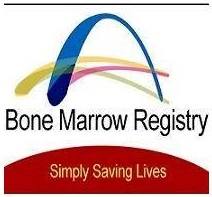
In bone marrow transplantation, there is a 25% chance that someone in the immediate family—mother, father, sister or brother—will be a match. Yet, this still leaves a tremendous possibility that a patient will not find a match within his or her immediate family. This is especially alarming for those patients in a minority population, because the likelihood of finding a match outside that population is quite low. This is where the Unrelated Marrow-Bone Marrow Registry comes in.
As Prof. Brautbar emphasizes, “We need more people going to marrow drives from the different minority populations, so we can increase the chances of finding a match for that one patient who will die otherwise.” Prof. Brautbar notes that the number of Palestinians registered is very small and this has a direct effect on the prognosis for a Palestinian patient in any hospital in Israel with no family match available.
The Hadassah Medical Center Bone Marrow Donor Registry doesn’t just rely on itself for donors. It participates with the International Donor Registry Center located in Holland and the United States of America’s National Marrow Donor Program (NMDP). There are approximately 11 million potential marrow and blood cell donors in these registries combined. Hadassah maintains a very close relationship with these registries and conducts a data transfer of potential donors each month.
Building a donor registry—especially within populations who are unfamiliar with the bone marrow donor program—takes time and education. The process also requires supplies and money. During bone marrow drives, a small vial of blood is taken from each potential donor and processed by a lab using a tissue-typing kit at a cost of 50-80 dollars, depending on the size of the drive. The tissue typing information is then filed in the registry, with a serial number, and the genetic profile is noted. Each potential donor’s name is kept confidential and the potential donor is contacted only in the event that there is a possibility for a
